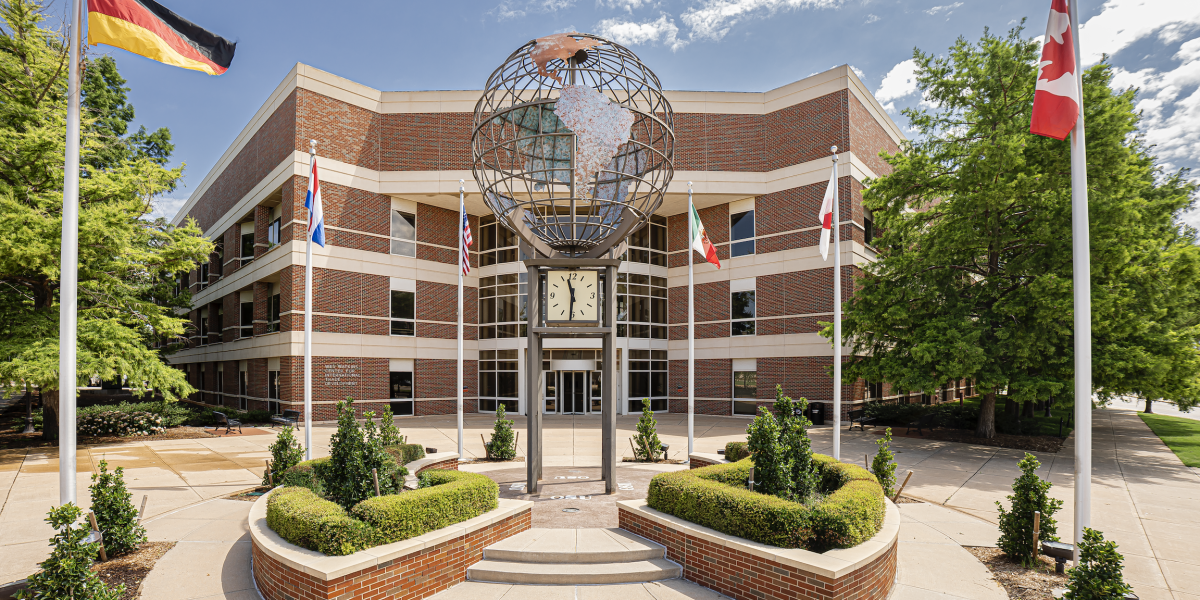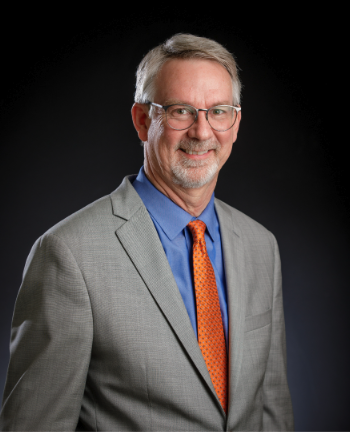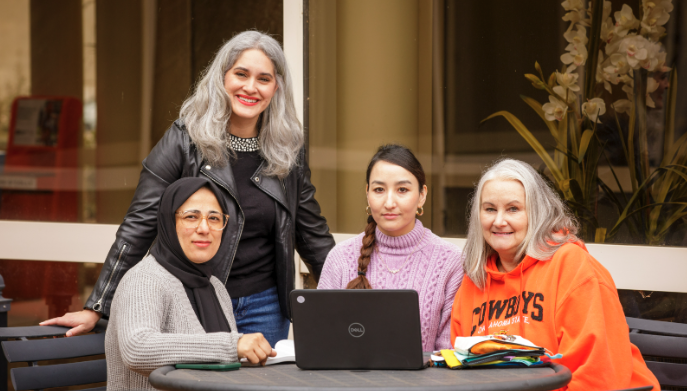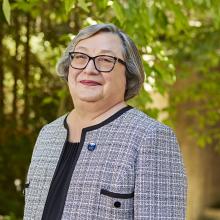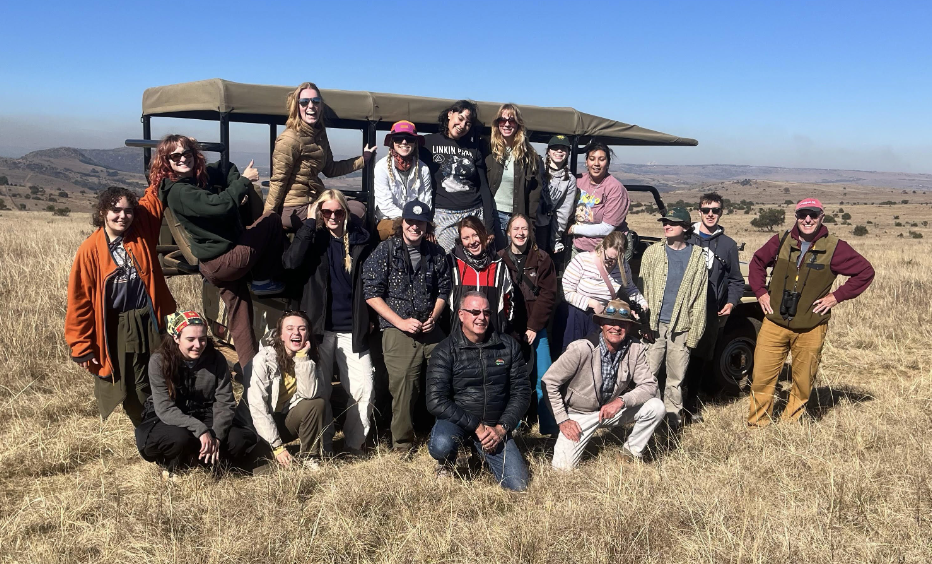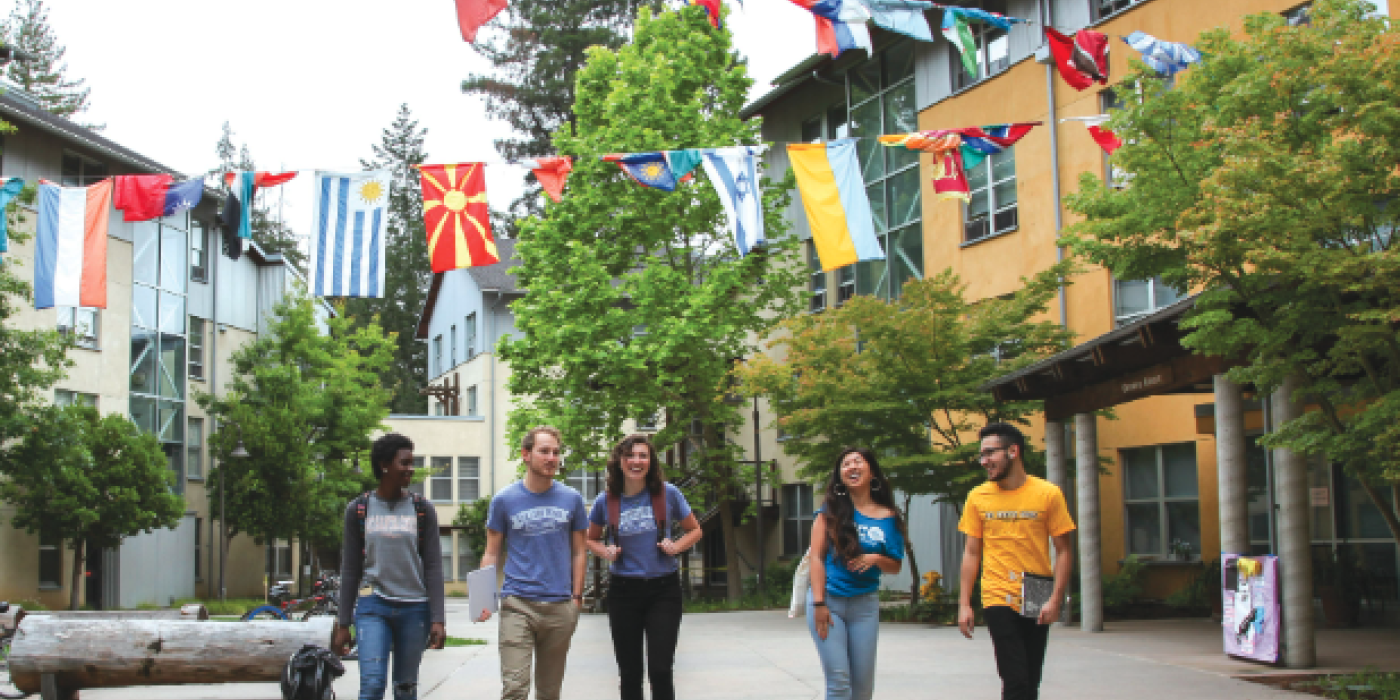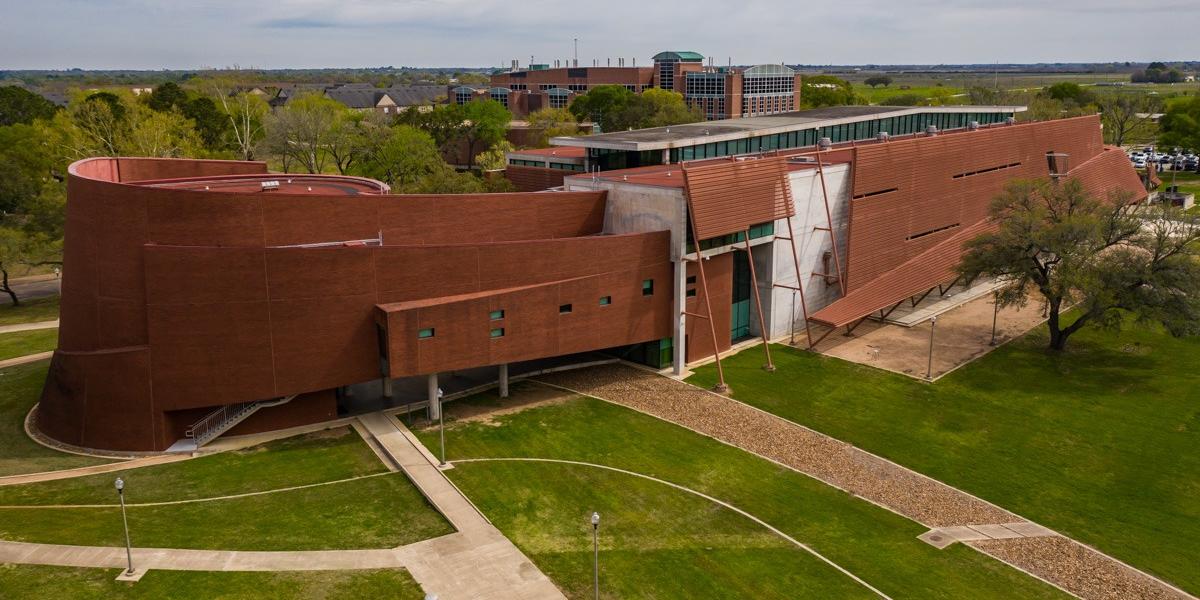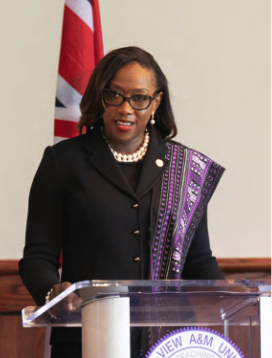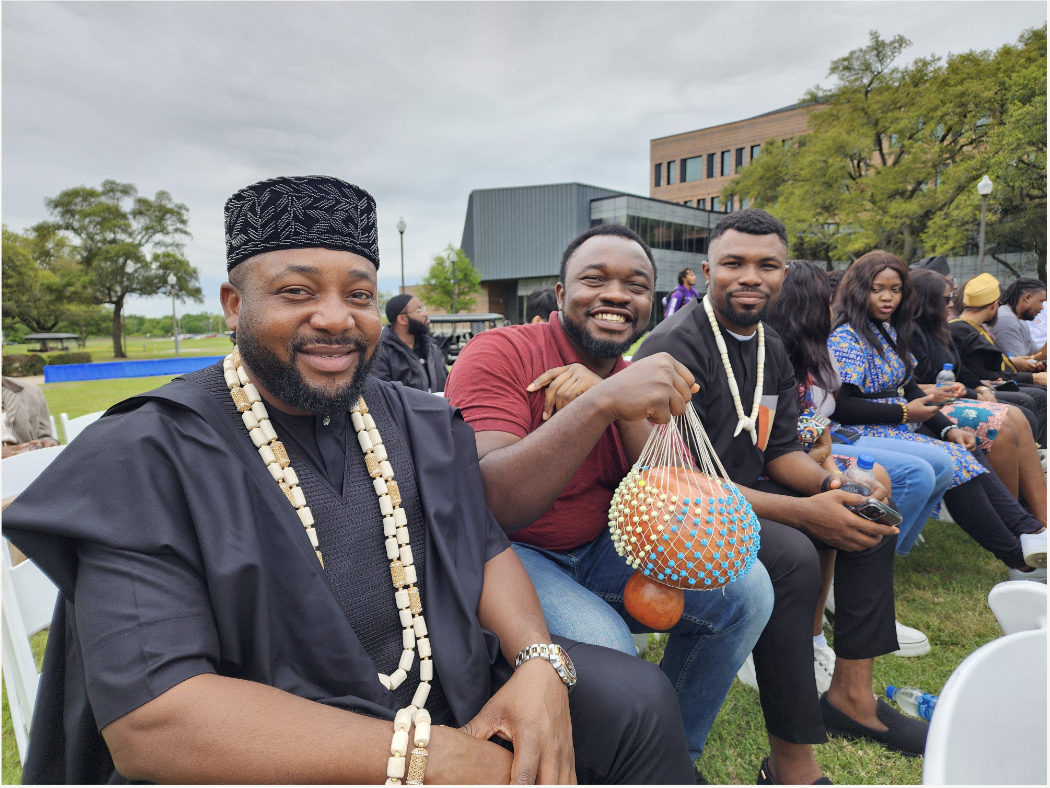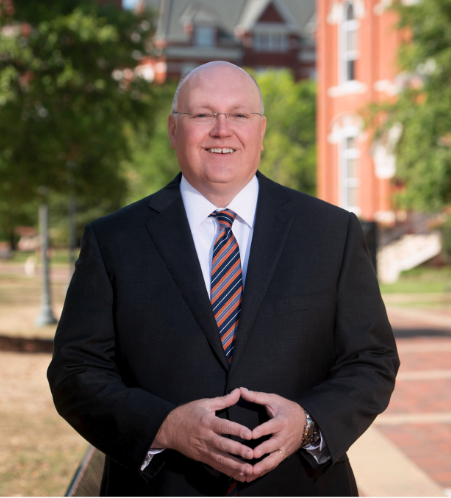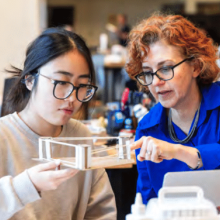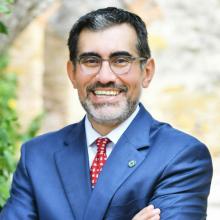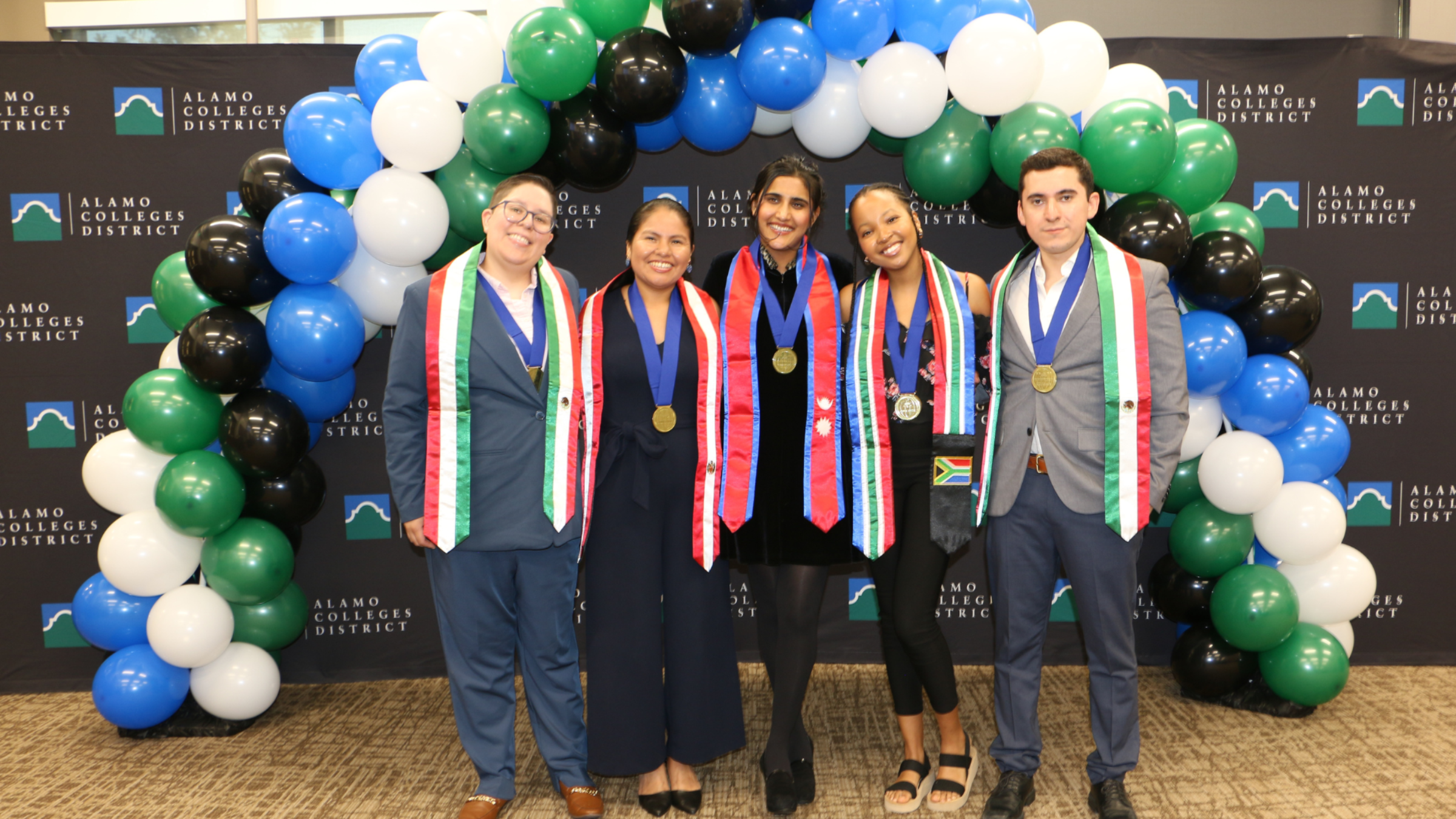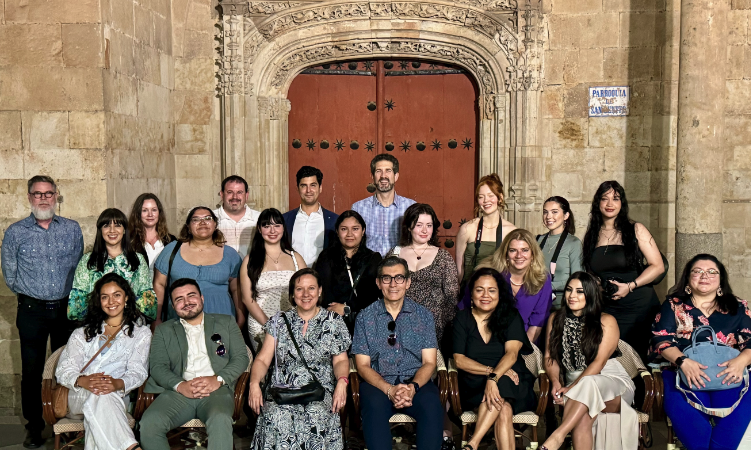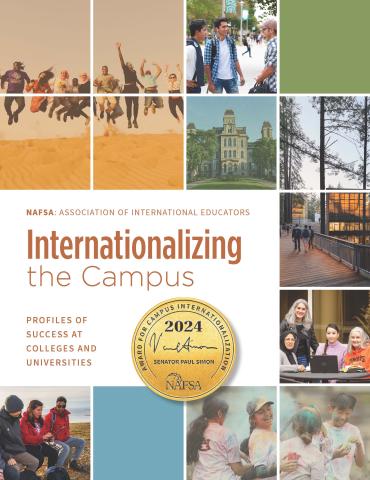2024 Spotlight Oklahoma State University
Oklahoma State University, located in Stillwater, Oklahoma, serves nearly 25,000 students across five campuses. In 2021, the university exemplified its commitment to public service as a land-grant institution by establishing a program to aid Afghan refugees resettling in Oklahoma. The Afghan Family Project provides English-language programs, cultural programming, and wraparound support as refugees rebuild their lives in a new country.
When Afghan refugees started arriving in Tulsa, Oklahoma, in late 2021 after the U.S. military withdrew from Afghanistan, Randy Kluver, associate provost and dean of OSU Global, recognized a need—and an opportunity—for the institution to support the state's resettlement efforts. Oklahoma State University (OSU) had empty family housing units on campus due to the COVID-19 pandemic, and Kluver realized the university had the ability to welcome Afghans and fulfill its responsibility of addressing pressing social issues in Oklahoma.
“As a land-grant university, part of our mission is to serve the state,” Kluver says. “Moving Afghan families to Stillwater was an attempt to create additional resettlement capacity.”
OSU's English Language and Intercultural Center (ELIC) became the hub of a program that was created to help integrate the new arrivals into the community: the Afghan Family Project.
During 2021–22, two OSU faculty, Stephanie Link and Michael Amory, directed the center, taking on the majority of the project planning and initial resettlement efforts. By January 2022, the refugees started arriving on campus. In total, the university welcomed 72 Afghans—around 20 families—to Stillwater, which has a population of about 50,000.
The ELIC has worked to offer English-language classes tailored to the specific needs of the group. While Emily Boersma—who took over as the ELIC director in August 2022—and her team started with beginner, intermediate, and advanced English-language classes, they soon realized they needed to further divide the classes to accommodate different demographics and learning styles. They created separate classes for men and women, stay-at-home moms, and different first- language groups. They even offered courses at home for those who were not comfortable in a traditional classroom setting.
As a land-grant university, part of our mission is to serve the state. —Associate Provost and OSU Global Dean Randy Kluver
In addition to providing English-language instruction, the ELIC offers cultural support and programming. It also employs several of the refugees who are enrolled at OSU, such as Zhina and Bareen, to assist with the resettlement project. (Editor’s note: Zhina and Bareen requested that their last names not be used in order to protect their identities.) These students serve as translators and cultural liaisons, bridging the gap between the Afghan families and the university community. The university also hired an Afghan program coordinator using funding from the Oklahoma Department of Human Services.
Zhina, who is completing a master's degree in global studies and works as a graduate assistant at the ELIC, helps coordinate cultural excursions and events for the Afghan families. These events, such as multicultural nights and Eid celebrations, bring the Afghan community together and provide a sense of social support.
Providing Wraparound Support
Beyond offering cultural and social support to the refugees, OSU Global collaborated with Oklahoma Human Services to secure funding for wraparound services. The initial six-month grant that it received from the department has been renewed twice, and OSU Global is currently securing an additional year of funding. Two case managers, Terri Hollarn and Joani Whitley, have been hired with this funding to assist refugees with accessing medical care, finding employment, and utilizing other services.
Whitley uses her counseling background to address psychological issues associated with resettlement, though providing mental health support through interpreters remains a challenge. “We've utilized telephone-based translation services to try to connect Afghans with counseling, but the language barrier and cultural stigma around seeking psychological help have made it difficult,” Boersma says.
In addition to these critical services, the university has sought to facilitate the refugees' access to higher education. OSU raised $100,000 for an emergency scholarship fund in collaboration with the university’s foundation and worked with the state of Oklahoma to grant access to in-state tuition to the resettled Afghans. (The Oklahoma State Regents for Higher Education have since made in-state tuition available at every public institution in the state to any student impacted by war.) The university also funds graduate assistantships that include tuition waivers for admitted Afghans who pursue graduate studies at OSU, Kluver says.
An Outpouring of Community Support
Local partners, including Stillwater Public Schools, the Islamic Society of Stillwater, and Catholic Charities of Eastern Oklahoma, have also provided critical support to the refugees. Volunteers have donated essential household items, facilitated English conversation practice, and helped Afghans with tasks like learning to drive.
“The outpouring of support from the community is what made this project successful,” reflects Boersma. “Local churches offered over $100,000 in financial assistance, which allowed us to provide expensive dental care that wasn't covered by benefits.”
For Zhina and Bareen, OSU's comprehensive support has helped them navigate life in a new country.
“When I arrived in Stillwater, I was suffering from a lot of problems, such as the trauma of leaving my loved ones. I didn't know what the next step would be,” Bareen says. “From the beginning, OSU welcomed us by providing an apartment with everything we needed. They are not just providing for our needs but supporting us in the best way.”
Zhina especially appreciates the social support. “OSU provided events to bring Afghan families together, not just in Stillwater but from places like Oklahoma City. We had multicultural nights and celebrated Eid together,” she says.
Expanding Support to Other Groups
Boersma says the focus of the program has now shifted away from crisis management. The ELIC is offering TOEFL preparation courses as more of the Afghans seek admission to OSU. Of the original 72 refugees, 30 have left the Stillwater area, mostly for family reunification elsewhere in the United States or to pursue work in larger cities, such as Tulsa.
Those remaining largely see Stillwater as their new home and have started looking for more permanent housing. Some refugees have been able to remain on campus after their initial year of rent—which was paid for by a community partner—ran out, either by studying or working at the university. OSU also still provides some campus housing support, with two campus housing units earmarked for refugee families. Other refugees are integrating further into the Stillwater area. One family purchased a home, while others are renting in the community.
“It's just been incredibly rewarding to watch these families settle in and start their lives over. The strength and resilience they've shown is amazing,” reflects Boersma.
OSU plans to continue welcoming Afghans and hopes to expand services to refugees of other backgrounds. “Opening our doors to these newcomers wasn't something universities typically do at this scale,” Kluver says. “But it has been a powerful example of mobilizing our resources to address a pressing human need in our state.”

